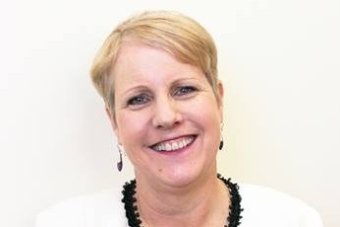Brain tumour survivor Senator Catryna Bilyk to lead inquiry into cancers with low survival rates
Posted
It was March 2008 when the headaches Tasmanian Labor senator Catryna Bilyk had experienced for 10 years intensified dramatically.
Ms Bilyk had been to two doctors who had given her injections and ordered her to rest.
Previously, she had been told she was just stressed; working full-time while winning a seat in the Senate.
She was due to take her place in the Upper House in July.
"If I had not been caught when I was, another four hours and the pressure on my brain would have left me in a vegetative state," she said.
She was raced to hospital after vomiting up black bile one afternoon.
"I told my husband I should go and get rehydrated, and so I packed an overnight bag, walked out to the car and that's the last thing that I remember for a few days," Senator Bilyk said.
She woke up in a neurosurgery ward after becoming delirious during the car trip to the hospital.
An MRI confirmed she had two benign tumours in her brain.
On March 27, 2008, the two tumours were successfully removed, after doctors drained the fluid from her brain.
The benign tumours had been in her head for 10 years.
Children dying of brain cancer 'absolutely gets' to Senator
Senator Bilyk considers herself very lucky.
"I did have a pretty good run. What I've learned since then is not many people had as good a run as me," she said.
Since then, she has dedicated herself to funding brain cancer research, raising $120,000 over the past eight years in various charity events in Tasmania and abroad.
 Photo:
Senator Catryna Bilyk was determined to take her seat in Parliament after recovering from her brain tumours. (Facebook: Tasmanian Labor Senator Catryna Bilyk)
Photo:
Senator Catryna Bilyk was determined to take her seat in Parliament after recovering from her brain tumours. (Facebook: Tasmanian Labor Senator Catryna Bilyk)
Senator Bilyk was determined to take her seat in Parliament, following a lengthy recovery.
"It did open up a whole new doorway to me and I decided that I wanted to do something about it when I went to Parliament," she said.
"I don't think it was an all-of-a-sudden thing but I do look at the world differently than what I used to."
What has been distressing for Senator Bilyk has been the rates of brain cancer in children.
"When you think that 35 kids in Australia each year aren't here because they died from brain cancer, that gets to me, absolutely gets to me," she said.
"If that was 35 kids drowning or 35 kids in car accidents or whatever, there would be lots of media and interest about it."
"And yet, most Australians don't know."
The five-year survival rate from brain cancer is just 21.6 per cent.
For stomach cancer it is 27 per cent, liver cancer it is 16 per cent and just 7 per cent for pancreatic cancer.
"While we've seen survival rates for diseases like breast cancer and leukaemia increase significantly in recent decades, rarer cancers like brain cancer have had little or no improvement," Senator Bilyk said.
'I don't think funding is the only issue'
Senator Bilyk also spent time talking with press gallery AAP reporter Peter Veness, who died in 2012 at the age of 27 after a battle with a rare form of brain cancer.
She said the impact of the cancer on young people cannot be understated.
"More people under the age of 40 die from brain cancer than any other cancer," she said.
 Photo:
Senator Bilyk spent time with AAP journalist Peter Veness, who died of brain cancer in 2012. (AAP: Alan Porritt)
Photo:
Senator Bilyk spent time with AAP journalist Peter Veness, who died of brain cancer in 2012. (AAP: Alan Porritt)
Senator Bilyk is set to stand down from her role as deputy opposition whip in the Senate to focus on her new role as chair of a new Senate committee that will look into funding for research into cancers with low survival rates.
It will examine whether more can be done to improve the survival rates of rare cancers and whether the funding model for the National Health and Medical Research Council can be improved.
The Cure Brain Cancer Foundation, founded by neurosurgeon Dr Charlie Teo, has vowed to increase five-year survival to 50 per cent by 2023.
Another aspect explored by the committee will be access to clinical trials.
"I don't think funding is the only issue, it's finding ways we can treat it and whether we can have different lots of trials," Senator Bilyk said.
Submissions are due on March 31 with public hearings expected throughout 2017.
Senator Bilyk said she hoped other cancer survivors would be able to share their stories.
Topics: health, cancer, government-and-politics, federal-parliament, tas, australia










